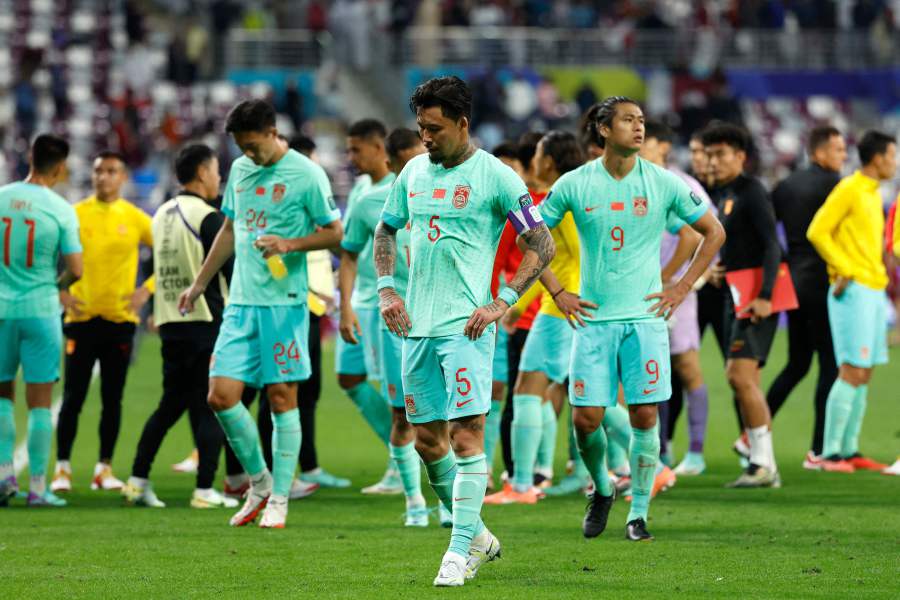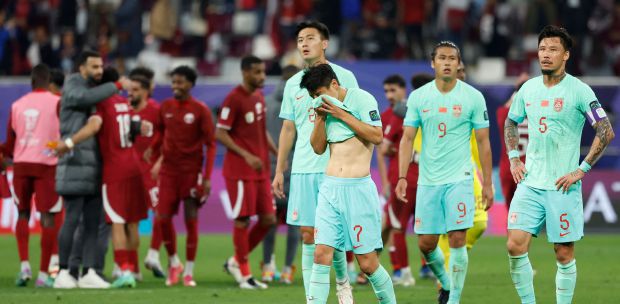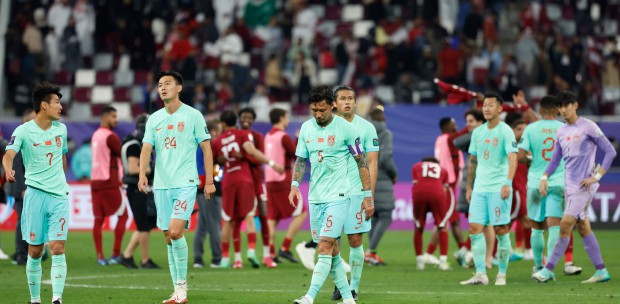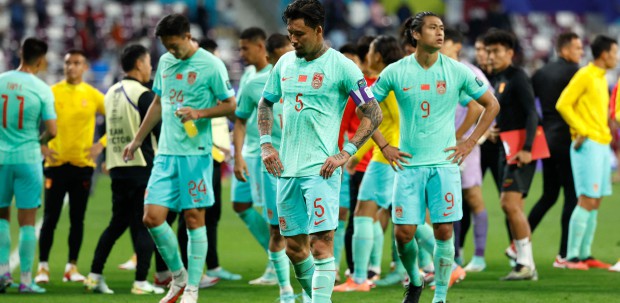Doha: Aleksandar Jankovic looks set to pay the price for China's worst Asian Cup in history, but the problems afflicting Chinese football run far deeper than the coach.
China had hoped to sneak past the group stage in Qatar as one of the four best third-placed teams, but Syria's win over India snuffed out that remote chance and Jankovic's men were gone at the first hurdle.
In truth, China did not deserve to progress to the knockout rounds, having failed to score a goal in any of their three matches.
"Chinese football slides into the abyss," was the headline in the Oriental Sports Daily.
Their doomed campaign began with a 0-0 draw against debutants Tajikistan, followed by the same outcome versus Lebanon.
That put it all on their final group game on Monday against holders Qatar and even though the hosts had qualified and fielded a much-changed team, China lost 1-0 to leave their hopes hanging by a thread.
They were left to rue several missed chances in the first half and afterwards the Serbian Jankovic, who has only been in the post permanently for 11 months, sounded like a man expecting the sack.
"There are two types of coaches in general – those who have been fired and those who will be fired," the 51-year-old said.
Reports in China on Wednesday said Jankovic was set to be sacked for what was their fourth time exiting in the group phase, but in those previous campaigns they at least won a game and scored.
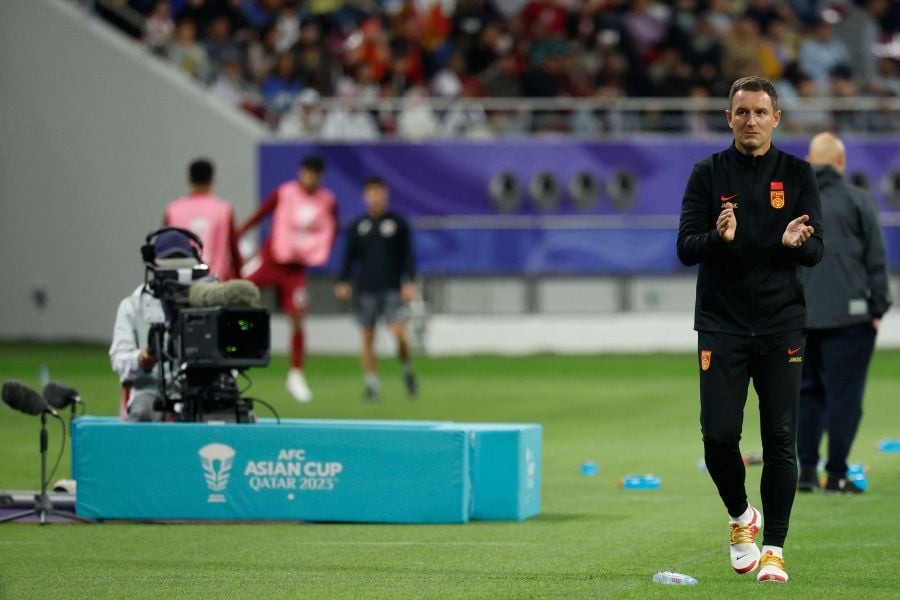
On the eve of the tournament, China's players were sat down to watch a television programme in which their former coach, Li Tie, said he had paid bribes to get the job and was involved in domestic match-fixing.
His former boss Chen Xuyuan, who had been the Chinese Football Association president, also appeared grim-faced in the programme. He is also detained and under investigation for corruption.
Back on the pitch, one of the few players to emerge with much credit was Tyias Browning, the England-born former Everton defender who was naturalised to play for China.
China were still looking to Wu Lei, the 32-year-old forward and once their talisman, for goals.
He was dropped for the game against Qatar and Wei Shihao was brought in, but he fluffed his lines and the big chances.
As Chinese fans and media soaked up the latest letdown, state media pinpointed the lack of youth talent as among the biggest of the many issues holding back football in the country.
Football fan President Xi Jinping once said he wanted China not only to host the World Cup, but win it. That far-fetched notion has been quietly forgotten.
It was not lost on the state-backed Global Times that the national side's "historic low" came in the same week that Chinese Super League club Shenzhen FC disbanded because of financial problems.
Days earlier, Dalian Pro – managed between 2019 and 2021 by Rafa Benitez, in the days when the CSL was flush with cash – also ceased to exist.
"The club dissolutions and the national team's shameful performance offer us a glaring portrayal of the current Chinese soccer landscape," the Global Times said.
It accused clubs of wasting money on foreign players and coaches in the past in the "blind pursuit of short-term victories" when they should have been investing in youth.
But it also noted that the problems run deeper than that. As many as 39 professional teams have gone bust since 2020, it said, most notably Jiangsu FC soon after they won the CSL.
Many relied on single investors, usually real-estate companies, and when they faced a cash crunch they simply pulled the plug.
China's squad may have been limited and ageing, but many pundits felt they were still better than they showed in Qatar and pointed the finger at former China youth coach Jankovic.
"Outsiders believed that the Chinese team should at least qualify from the group stage, but who would have thought that they would not score a single goal in three games?" columnist Ma Dexing wrote in the Oriental Sports Daily.
"People don't care why this situation occurs in Chinese football," he said of the challenges that Jankovic was undoubtedly presented with.
"But one thing is for sure: the current coach won't do."


